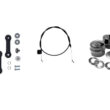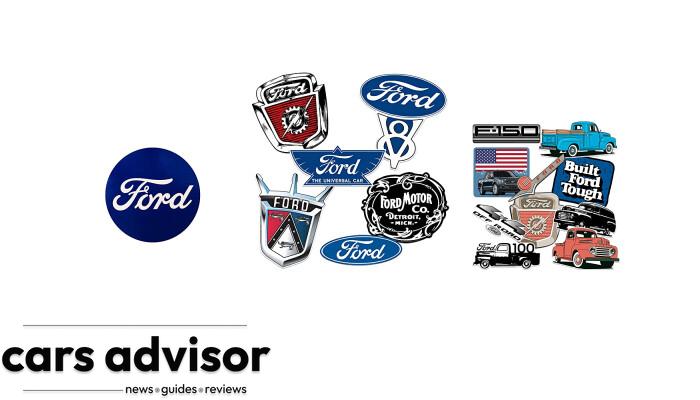Understanding Gear Oil Viscosity
Viscosity grades in gear oil indicate how thick or thin the oil is and how it will perform under different temperatures and loads.What Are Viscosity Grades And How Do They Work?
Understanding viscosity grades is crucial when it comes to selecting the right gear oil for your vehicle. In simple terms, viscosity refers to a fluid’s resistance to flow – in other words, how thick or thin it is.Gear oils have different viscosity grades which are represented by numbers such as 75W90 and 75W140.The first part of the grade – “75W” in both cases – indicates how well the gear oil performs at low temperatures. The “W” stands for winter and relates to the oil’s ability to flow in cold conditions; this means that both 75W90 and 75W140 share similar properties at lower oil temperatures.The second part of the grade represents its high-temperature performance: 90 for 75W90 and a thicker, more viscous 140 for 75W140.Let’s use dessert as a fun analogy: think about pouring chocolate syrup on ice cream versus trying to pour honey straight from your pantry onto your breakfast toast.Why Are They Important For Your Vehicle?
As a driver, you rely on your vehicle’s transmission system to function effectively regardless of the driving conditions. Gear oil viscosity is vital in determining your car’s transmission efficiency and longevity.Low-quality gear oil or incorrect selection can result in gear failure or even costly transmission repairs. Therefore, understanding gear oil viscosity grades and selecting the right one for your vehicle is crucial for optimal performance, fuel economy, and ultimately cost savings in the long run.The correct choice of gear oil ensures proper lubrication of moving parts while also protecting against frictional wear and corrosion.Differences Between 75W90 And 75W140 Gear Oil
75W90 and 75W140 gear oil have significant differences in viscosity, performance in extreme temperatures, and load-carrying capacity.Viscosity Differences
As mentioned earlier, viscosity is the measure of a fluid’s thickness or resistance to flow. When it comes to gear oil, both 75W90 and 75W140 have different viscosity grades that affect their performance.75W140 contains higher viscosity than 75W90, meaning it flows more slowly at lower temperatures.These differences in viscosity directly impact the lubrication properties of each oil. In general, thinner oils like 75w90 are better suited for gasoline engines with less demanding loads since they flow more easily during cold starts and provide better fuel economy than thicker oils.Thicker oils like the full synthetic blend or fully synthetic version of 75w140 perform better under heavy loads found in diesel engines where high load-carrying capacity is essential.However, both types of gear oil offer similar performances at lower temperatures when they exhibit almost identical viscosities.Performance In Extreme Temperatures
As someone who lives in a region with extreme temperature fluctuations, I know firsthand how important it is to choose the right gear oil for my vehicle.In colder temperatures, 75W90 gear oil can be easier to pump through your vehicle’s transmission and differential due to its thinner viscosity grade. However, during hotter weather conditions or high-load applications, 75W140 is typically a better option as it has a higher viscosity rating which allows it to provide superior protection and load-carrying capacity. It’s also worth noting that fully synthetic versions of these oils generally perform better than their semi-synthetic counterparts at higher temperatures.Load-Carrying Capacity
As mentioned in the previous section, load-carrying capacity is an essential aspect to consider when choosing between 75W90 and 75W140 gear oil. If you have heavy-duty vehicles or equipment that requires high-load applications such as towing or hauling, then 75W140 may be a better option due to its thicker viscosity grade.However, it’s important to note that the load-carrying capacity of gear oil is also dependent on additives included in the formulation. Therefore, if your vehicle manufacturer recommends a specific type of gear oil with additional additives for better protection against wear and tear during high-load applications, it’s best to follow their advice.Fuel Economy
A thinner viscosity grade in high temperatures makes 75W90 the better choice for those looking to save on gas mileage.It’s important to note, however, that while 75W140 uses a thicker viscosity grade than its counterpart, it does offer greater load-carrying capacity, making it perfect for high-load applications like towing or hauling heavy cargo.Ultimately, the decision between these two types of gear oils depends on various factors such as manufacturer recommendations and driving conditions.Can Low Oil Pressure Cause Hemi Engine Problems?
Low oil pressure can indeed lead to hemi engine oil pressure issues. When the oil pressure drops, it fails to properly lubricate the engine’s moving parts, causing excessive wear and tear. This can result in various problems such as engine overheating, increased fuel consumption, and ultimately engine failure. Maintaining optimum oil pressure is crucial for the smooth operation and longevity of a Hemi engine.
Advantages And Disadvantages Of 75W90 And 75W140 Gear Oil
Both 75W90 and 75W140 gear oil have their own set of advantages and disadvantages; while the former is more fuel-efficient, better suited for gasoline engines, and thinner in viscosity grade at high temperatures, the latter provides greater load-carrying capacity, is suitable for diesel engines, and offers better protection to gears and bearings.Advantages Of 75W90
As an experienced mechanic, I have found that using 75W90 gear oil provides several advantages for your vehicle. Here are a few advantages of this type of gear oil:- Better Fuel Economy: 75W90 gear oil has a thinner viscosity grade than 75W140 in high temperatures, which allows it to provide better fuel economy.
- Suitable for Gasoline Engines: If you have a gasoline engine, then 75W90 is more suitable as it provides proper lubrication to the gears and bearings.
- Cost-Effective Option: Compared to synthetic blend or fully synthetic motor oils, 75W90 is a cost-effective option that does not sacrifice performance.
- Resistant to High Temperatures: This type of gear oil is highly resistant to high temperatures, so it can protect your engine even during extended use.
- Offers Excellent Lubrication Properties: The lubrication properties of 75W90 are excellent, which means it can reduce friction between the gears and bearings, preventing premature wear and tear.
- Provides Smooth Shifting: Using 75W90 protects the transmission and differential from damage while providing smoother shifting, which results in a better driving experience.
- Able to Handle Light Loads: For vehicles with light loads such as cars and small trucks, using 75W90 gear oil is highly recommended because it’s less viscous than other types of gear oil and won’t cause engine problems.
Advantages Of 75W140
When it comes to gear oil, 75W140 has several advantages over its counterparts:- Greater load-carrying capacity: 75W140 has a higher viscosity rating, which means it can handle more weight and pressure than 75W90. This makes 75W140 the better choice for vehicles with high-load applications.
- Better protection: The thicker viscosity of 75W140 provides better protection for gears and bearings against wear and corrosion, making it ideal for heavy-duty applications.
- High-temperature performance: 75W140 is more resistant to breakdown in high temperatures, making it better suited for vehicles that operate in extreme heat conditions.
- Long-lasting: Due to its superior performance and ability to handle heavier loads, 75W140 lasts longer than lower-rated gear oils like 75W90.
- Suitable for diesel engines: Because diesel engines produce more torque than gasoline engines, they require a gear oil with a higher load-carrying capacity. This makes 75W140 the best choice for diesel vehicles.
- Compatible with hypoid gears: Hypoid gears are used in many modern vehicles and require special lubrication properties that only gear oils like 75W140 can provide.
Disadvantages Of 75W90
As much as 75W90 has its advantages, it also has some drawbacks. Here are some of the disadvantages to consider:- Not Suitable for Very High or Low Temperature Environments: 75W90 may not perform optimally in extremely high temperatures such as in racing applications or very low temperatures such as in cold weather conditions.
- Reduced Protection for Gears and Bearings: While 75W90 provides good protection against wear and tear, it may not be able to sustain the level of protection needed by gears and bearings over time.
- Limited Load-Carrying Capacity: Compared to 75W140, 75W90 has a lower load-carrying capacity which means it may not be ideal for heavy-duty applications that require high load resistance.
- Limited Viscosity Range: 75W90 has a narrow viscosity range which can limit its overall performance in various driving conditions.
- Poor Performance in Extreme Pressure Situations: When subjected to extreme pressure loads, 75W90 has been known to break down more easily than other gear oils with higher viscosity grades.
Disadvantages Of 75W140
In my experience, there are a few points to consider when it comes to the disadvantages of using 75W140 gear oil:- Higher viscosity: While the high viscosity of 75W140 provides better protection for gears and bearings, it can also put more strain on your vehicle’s components. This can result in reduced fuel economy and decreased performance in extreme temperatures.
- Not Suitable for Gasoline Engines: 75W140 is generally not recommended for use in gasoline engines as it may cause excessive wear and tear on certain engine parts.
- Expensive: Due to its synthetic blend or fully synthetic composition, 75W140 gear oil tends to be more expensive than other conventional gear oils.
- Limited Compatibility: Some older vehicles may not be compatible with 75W140 gear oil due to their unique transmission systems or fluid requirements.
- May Cause Leaks: If your vehicle has been running on a different type of gear oil for a long time, switching to 75W140 may cause leaks or other issues due to the differences in its chemical composition.


















